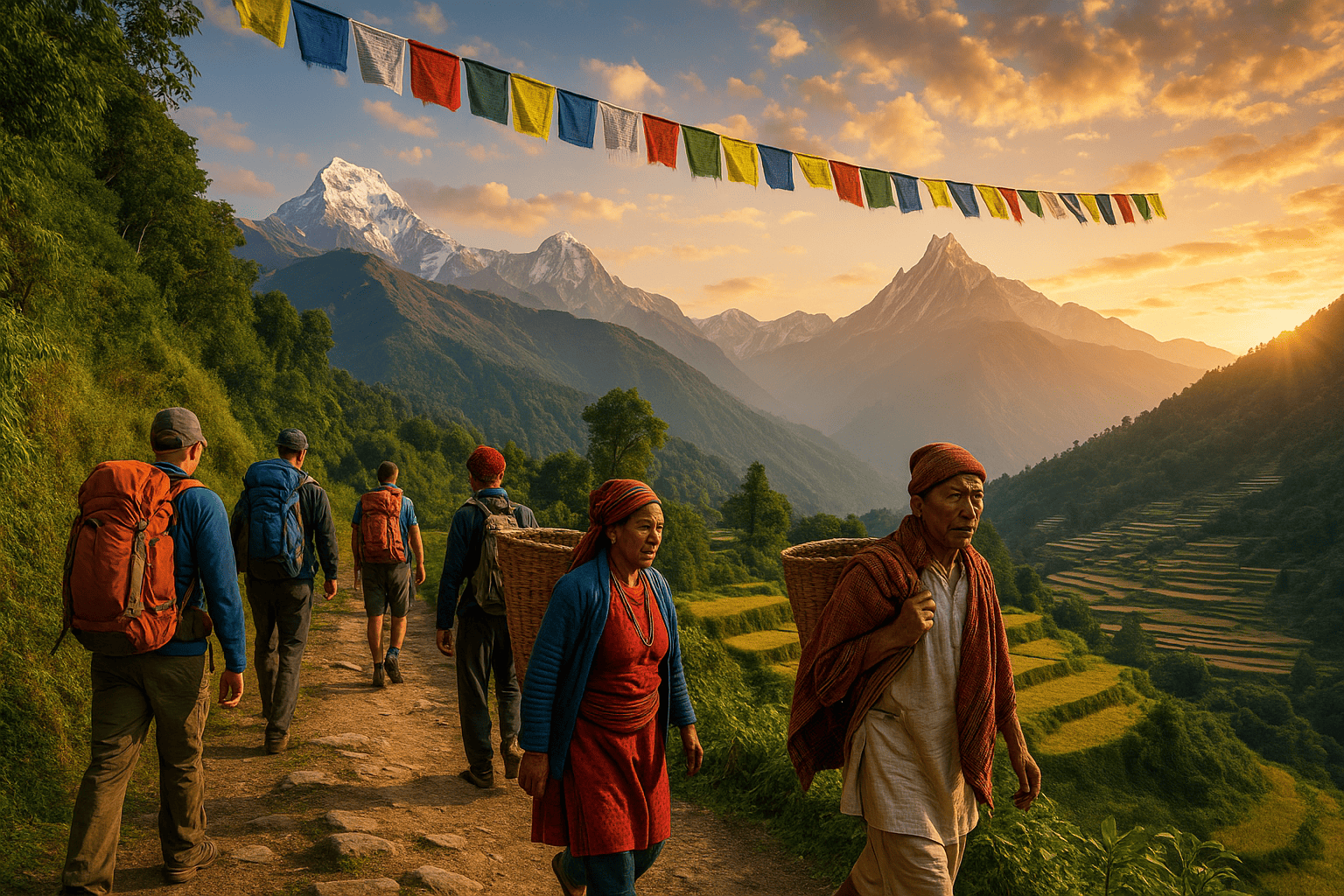Introduction
Adventure travel is often associated with adrenaline and exploration, yet its cultural dimension is equally profound. In recent years, trekking routes through indigenous territories have offered travelers a chance to witness living traditions, ancestral wisdom, and place-based knowledge systems that are rapidly vanishing. This blog explores how adventure travel, when conducted ethically, can help preserve indigenous knowledge, promote cultural sustainability, and build bridges between communities and global visitors.
Understanding Indigenous Knowledge Systems
Indigenous knowledge (IK) refers to complex bodies of know-how developed by indigenous communities through centuries of interaction with their environment. It encompasses ecological understanding, spiritual worldviews, medicinal practices, agriculture, and oral storytelling. Unlike scientific knowledge, IK is often transmitted orally, tied to landscape, and practiced communally.
Examples include the Inca’s trail-based communication systems in the Andes, the Sherpas’ high-altitude adaptation knowledge in Nepal, and the Sami people’s reindeer migration routes in the Arctic.
Adventure Travel as a Cultural Interface
Trekking through indigenous regions provides travelers with direct exposure to local customs and environmental stewardship. When guides and hosts are local, treks become platforms for cultural transmission. For example:
– In the **Himalayas**, local Sherpa guides not only lead travelers but also introduce them to Buddhist rituals, altitudes-based herbal practices, and community architecture.
– In **Peru**, the Salkantay or Lares trek allows interaction with Quechua communities, where visitors learn about traditional weaving, Incan agricultural terraces, and cosmological beliefs tied to mountains (Apus).
– In **Northern Thailand**, treks through Karen and Lahu villages expose travelers to rice cultivation, animist rituals, and bamboo architecture.
Benefits to Indigenous Communities
When properly organized, trekking tourism brings socio-economic benefits that reinforce cultural practices:
– **Economic empowerment** through employment, guiding, and homestays
– **Language preservation** as guides explain concepts in local dialects
– **Craft revival** where traditional arts (e.g., weaving, basketry) gain value as souvenirs
– **Community pride and resilience**, encouraging younger generations to stay rooted
Studies by the International Ecotourism Society show that culturally sensitive treks result in stronger cultural continuity and local stewardship.
Risks and Challenges
Despite its potential, adventure tourism can be exploitative if poorly managed:
– Commercial trekking may lead to **commodification** of culture, where traditions are staged for entertainment.
– **Environmental degradation** from foot traffic, plastic waste, and infrastructure.
– **Cultural erosion** if external values overpower indigenous worldviews.
Avoiding these outcomes requires community consent, participatory planning, and equitable profit-sharing models. NGOs and certified eco-tour operators now co-design itineraries with indigenous councils to ensure ethical alignment.
Case Studies in Ethical Trekking
**1. Zanskar Trek, India**
This trek crosses remote Buddhist villages, preserving Ladakhi heritage. Local schools integrate trekking into cultural education.
**2. Rwenzori Mountains, Uganda**
Home to the Bakonzo people, the Rwenzori treks involve cultural briefings, drumming sessions, and guided storytelling walks.
**3. Choquequirao Trail, Peru**
Often dubbed the ‘sister city of Machu Picchu,’ this route involves Quechua community input, highlighting Andean rituals and farming heritage.
Future Pathways: Sustainable Trekking Models
The future of trekking-based cultural preservation lies in:
– **Capacity building** for indigenous guides, with training in ecology, language, and hospitality
– **Digital storytelling** where local voices document and share traditions online
– **Certification programs** like Green Treks or Indigenous Tourism Associations
– **Research collaboration** with anthropologists and ecologists
These models blend tradition with innovation, ensuring that adventure travel remains a tool for empowerment, not exploitation.
Conclusion
Adventure travel can go beyond exploration to become a platform for cultural respect and preservation. Treks that engage indigenous knowledge systems offer travelers unparalleled insight into humanity’s diverse ways of life. When designed and executed ethically, trekking traditions can serve as bridges—linking the past to the future, the local to the global, and tradition to sustainability.
References
– United Nations World Tourism Organization (UNWTO). (2023). Indigenous Tourism Reports.
– The International Ecotourism Society. https://www.ecotourism.org/
– Guttal, S. (2001). Walking the Talk: Cultural Tourism and Indigenous Peoples. *Third World Resurgence*.
– Responsible Travel. https://www.responsibletravel.com/

